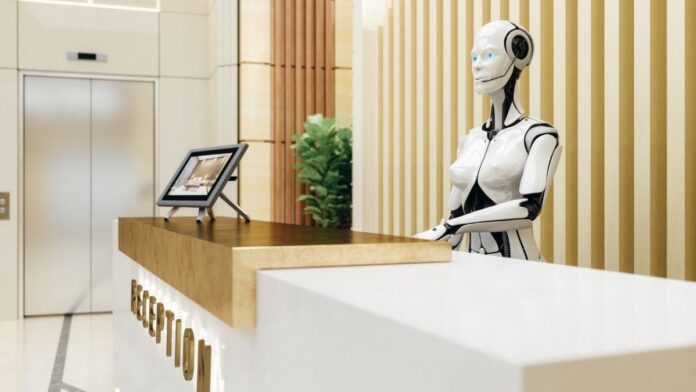Hotel robots are reshaping the hospitality industry by streamlining operations, enhancing guest experiences, and reducing overall costs. By taking over tasks traditionally performed by humans, these machines enable hotels to operate more efficiently and offer a competitive edge.
Advancements in artificial intelligence, smart room technology, and robotics have made it impossible for hoteliers to overlook the potential of these innovations. Robots now assist with everyday duties such as greeting visitors, performing housekeeping, delivering room service, and transporting luggage. Below, we explore the latest trends and benefits of integrating robotic technology into hotel operations.
Defining Hotel Robots
Hotel robots are automated devices designed to perform specific tasks that lighten the workload and improve operational efficiency. They allow hotels to streamline processes and enhance guest satisfaction by performing a variety of roles, tailored to the unique needs of the establishment.
Why Hotels Are Turning to Robots
Integrating robots into your team is not just a modern trend—it’s a smart financial move. These machines provide high-quality service while easing the burden on human staff, eliminating the need for additional hires. Once considered prohibitively expensive, robots have now become accessible and practical for everyday use. With the growing role of immersive technology in our daily interactions, employing robots can help hotels differentiate themselves, better engage guests, and respond swiftly to service requests.
Types of Hotel Robots
Room Service Robots:
Instead of dedicating staff to deliver room service, hotels can deploy robots from the kitchen to deliver orders. This approach reduces wait times, maintains food quality, and allows staff to focus on other important tasks.
Concierge Robots:
Making a strong first impression is critical in hospitality. Robots can greet guests, guide them to reception areas for check-in, and provide directions to various hotel amenities or local attractions—especially useful during off-peak hours.
F&B Service Robots:
Surprisingly, robots can also serve as waitstaff. They are capable of taking orders and delivering food, either by navigating freely through the dining area or following predefined routes, ultimately enhancing the dining experience.
General Service Robots:
These versatile machines support various operational needs. They can transport linens for laundry or deliver extra amenities like pillows to guest rooms, streamlining routine services.
Housekeeping Robots:
Much like robotic vacuum cleaners used in homes, these devices assist with cleaning tasks in hotels. They can vacuum public areas during off-hours, minimizing disruption and reducing the workload for the housekeeping team.
The Advantages of Using Hotel Robots
Robots offer numerous benefits by enhancing guest-centric services. By automating manual tasks, hotel staff can concentrate on personalized guest interactions, signaling to visitors that the establishment is both innovative and forward-thinking. Although the initial cost of implementation can be high, the long-term savings from reduced labor costs and improved operational efficiency are significant. Additionally, using robots can help with staff retention by allowing employees to focus on more rewarding tasks.
Looking Ahead: The Future of Hotel Robotics
The trend towards automation in hotels is only set to grow. More departments are likely to adopt robotic solutions to boost operational efficiency without replacing the human element entirely. Robots will continue to support staff by enhancing guest experiences, expediting service delivery, and revolutionizing traditional processes such as check-in. As the cost of robotic technology decreases, it’s expected that these devices will become a common sight in hotels worldwide.
Final Thoughts
The integration of robots into the hospitality industry is transforming the hotel experience by reducing costs, streamlining operations, and enhancing guest satisfaction. When implemented strategically, these technologies free up human resources to focus on revenue-generating and guest-centric activities, ensuring that the personal touch remains at the heart of hospitality. The conversation has evolved from questioning whether to adopt robots to exploring how best to incorporate them to improve every facet of hotel operations.





